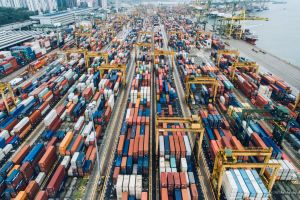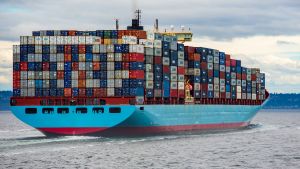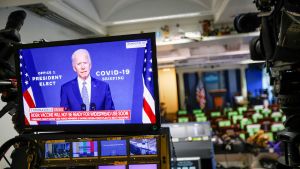Globalization's Double-Edged Sword
While our world is more connected than ever, it's also more competitive and prone to conflict. Guest Mark Leonard explains why stronger links launched the "age of unpeace."
 Play Podcast
Play Podcast
About the Episode
Globalization promised us collaboration, peace, and prosperity. But did the connectivity that linked our world together increase conflict and drive our geopolitical priorities farther apart? The European Council on Foreign Relation’s Mark Leonard joins Deep Dish to discuss his new book The Age of Unpeace and his proposal for policymakers navigating our connected future.
Key Moments
- How connectivity drives conflict - 1:42
- Defining “unpeace” - 6:36
- The weaponization of connectivity - 9:46
- New topography of power - 15:05
- China’s strategy - 19:26
- Three big blocs? - 25:26
- Geopolitical therapy - 28:44
- What’s next? - 34:30
Reading List
Go deeper on the connection between globalization and "unpeace"
About the Experts
Co-founder & Director, European Council on Foreign Relations

Mark Leonard is co-founder and director of the European Council on Foreign Relations, the first pan-European think tank. His topics of focus include geopolitics and geoeconomics, China, EU politics and institutions. Leonard hosts the weekly podcast “Mark Leonards’s World in 30 Minutes” and writes a syndicated column on global affairs for Project Syndicate. He is author of the 2021 book The Age of Unpeace.

Brian Hanson
Former Vice President, Studies

Brian Hanson served as the vice president of studies at the Chicago Council on Global Affairs. He managed the Council's research operations and hosted the Council's weekly podcast, Deep Dish on Global Affairs.

Related Content
 Global Economy
Global Economy
Elizabeth Shackelford explains how we can better prepare our people and economy for disruptions.
 Global Politics
Global Politics
REUTERS
Although COVID-19 brought many aspects of our world to a standstill over the last year, violent conflict was not one of them. What can we do to end the cycle?
